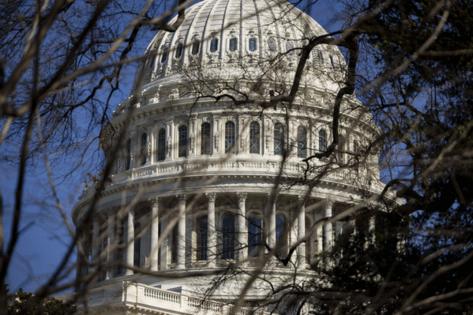Editorial: US Senate should strike AI regulation ban from budget bill
Published in Op Eds
In the current national political climate, bipartisanship is extremely rare, especially when it comes to important topics such as states’ rights and regulating the use of artificial intelligence.
But it was exactly such legislation that brought U.S. Sens. Maria Cantwell, D-Wash., and Marsha Blackburn, a Republican from Tennessee, together.
Just as time winds down for a final vote, Senate Republicans tucked inside the tax and budget bill President Donald Trump calls “big and beautiful” a provision that would ban states from enforcing any laws their state legislatures may have passed that regulate artificial intelligence.
Washington and Tennessee are among 40 states, including other red states such as Arkansas and Louisiana, whose attorneys general have voiced opposition to the provision that seeks to undo a lot of what their offices have done.
Tennessee’s attorney general joined Washington AG Nick Brown in opposition to the ban on AI rules enforcement.
“At the pace technology and AI moves, limiting state laws and regulations for 10 years is dangerous,” Brown said. “If the federal government is taking a back seat on AI, they should not prohibit states from protecting our citizens.”
Washington has been in the forefront when it comes to protecting consumers, children and the public in general from bad actors in the AI sector.
In 2023 the state Legislature passed a law that requires political campaigns to disclose when media content or ads that depict a candidate have been altered using AI. It created a law in 2024 to make it a criminal offense to create, possess or distribute fabricated intimate images of minors engaged in sexual acts. And this year, it passed a law that makes it illegal to purposefully distribute a “forged digital likeness” of another person’s image or voice for the purpose of deception.
“Companies shouldn’t want us to wait until something really bad happens, until someone dies because of a lack of AI regulation,” said state Rep. Cindy Ryu, D-Shoreline, who sponsored the digital likeness bill and serves on the AI task force for the National Council of State Legislators.
To tighten the rules even more, the proposed provision, which was added to the reconciliation bill, would make access to funding from the Broadband Equity Access and Development program contingent on compliance with the 10-year moratorium. Washington was allocated $1.2 billion from the program to provide better access for the 214,000 Washington residents who have inadequate broadband.
States have a duty to protect residents and their identities in an industry that is developing rapidly. That will take unity and increased pressure on the Senate Republicans.
_____
©2025 The Seattle Times. Visit seattletimes.com. Distributed by Tribune Content Agency, LLC.

























































Comments